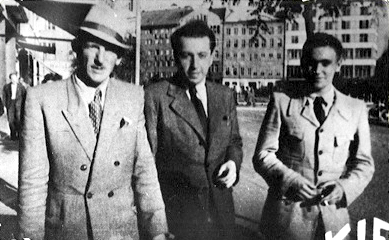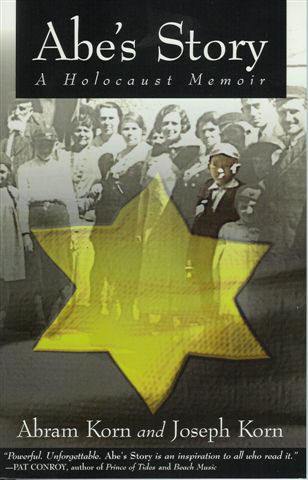
Escapees from Auschwitz
“On April 7, 1944, two Slovakian Jews, twenty-six-year-old Alfred Weczler and twenty-year-old Rudolf Vrba, escaped from Auschwitz. They provided the first eyewitness account of the concentration and extermination camp to the western world, an account that set off the chain of events that led to the Nuremberg trial.
Rudolf Vrba – excellent site with details
The Alfred Weczler – Rudolf Vrba Report
“On April 7, 1944, two Slovakian Jews, twenty-six-year-old Alfred Weczler and twenty-year-old Rudolf Vrba, escaped from Auschwitz. They provided the first eyewitness account of the concentration and extermination camp to the western world, an account that set off the chain of events that led to the Nuremberg trial. …
Escape from Auschwitz was made difficult not only by the physical barriers, but by the negative attitude of the general camp population, which suffered after every escape. If an escapee somehow made his way beyond the two electrified barbed-wire fences and watchtowers, blaring sirens alerted the whole countryside. Dogs were put into pursuit, and SS and military personnel began to comb the fields and woods. With his shorn head and prison uniform, an inmate could expect no help from the local populace, for assisting an escapee meant death.
Weczler and Vrba had, however, learned from the failures of others and been able to secrete civilian clothing, money, and food. On April 7, 1944, they slipped through the cordon at Birkenau, and within a week they were in Bratislava, Slovakia.
When, at first, they told their tale to members of the Jewish community remaining in that city, they were greeted with incredulity.
When Hitler dismantled Czechoslovakia in 1939, he had left the Slovaks nominally in charge of their own internal affairs, dependent on good behavior. The Slovaks had copied most of the German anti-Semitic laws, expropriated Jewish businesses, removed the Jews from government and the professions, and left them with little opportunity to earn a living. By the spring of 1942 most of the eighty thousand Jews were unemployed and compressed into a few blocks in two cities, Sered and Novaky.
In March, Adolf Eichmann, the head of the Gestapo’s Jewish Section, offered to take seventeen thousand of the unemployed Jews off the Slovakian government’s hands for, ostensibly, work in German arms factories. On April 13, Weczler, packed with threescore other men into a small freight car furnished with a single bucket of water, became part of a transport of 640 men destined for Auschwitz.
Return to Witnesses




